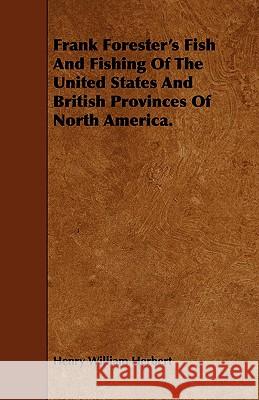Frank Forester's Fish And Fishing Of The United States And British Provinces Of North America. » książka
Frank Forester's Fish And Fishing Of The United States And British Provinces Of North America.
ISBN-13: 9781443754491 / Angielski / Miękka / 2008 / 548 str.
Frank Forester's Fish And Fishing Of The United States And British Provinces Of North America.
ISBN-13: 9781443754491 / Angielski / Miękka / 2008 / 548 str.
(netto: 129,70 VAT: 5%)
Najniższa cena z 30 dni: 135,81
ok. 16-18 dni roboczych
Dostawa w 2026 r.
Darmowa dostawa!
Many of the earliest books, particularly those dating back to the 1900s and before, are now extremely scarce and increasingly expensive. We are republishing these classic works in affordable, high quality, modern editions, using the original text and artwork.
These containers serve to carry this fine material through the slag and provide a means for quickly disseminating it through the metal, when it is not convenient or possible to hold the steel longer than three or four minutes in the ladle. This method of adding Ferro Carbon-Titanium has proved of especial value in the treatment of Converter Steel. The value of Titanium Treatment of Steel is now so well recognized and the use of Ferro Carbon-Titanium so general that it is unnecessary to refer to the properties of Titanium, which are well known to all metallurgists and practical steel men. Titanium alone of all the deoxidizers leaves practically no product of its oxidation in the finished steel. In rail steel, for instance, which has been treated with Titanium the total Titanium in the finished steel has never been found to exceed .03 and any such amount as this is very unusual. This minute quantity is always evenly distributed throughout the ingot and has never been found in streaks or segregated areas as are Alumina, Manganese Sulphide, or Iron Silicates. When Manganese or Silicon is added to a ladle of steel in the form of Ferro Alloys from 65 to 8 j of the total Manganese or Silicon will be found in the final product. These metals do not remain in the steel uncom- The Titanium Alloy Manufacturing bined. They occur as Manganese Carbide, Oxide or Sulphide, Iron Silicates, etc., and all of these impurities, except the Carbide, are known to form streaks or agglomerations which cause weak spots to develop in the metal...











